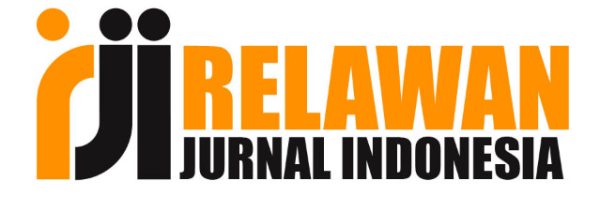The Ontology and Epistemology of Maqāṣidī-based Knowledge and Its Educational Implications
A Methodological Perspective
DOI:
https://doi.org/10.52100/jcms.v1i1.57Keywords:
maqasid al-shariah, maqāṣidī-based method, islamic development philosophy, ontology, epistemologyAbstract
Maqasid al-Shariah herein denotes the higher objectives of the Islamic Revelation that guide Muslim worldly and spiritual life. This article aims to extract these Maqasid from the Holy Qur’an and investigate their philosophical, theoretical and practical implications. Ontologically, Maqasid entails a systematic view of the universe that governs the relationship between the Creator and His creation, which in turn governs the natural, psychological and social environments. In this regard, Maqasid proposes an integrated network of relations between these environments, incorporating ʻibādah, ʻimārah, tazkiyah, khilāfah, and istikhdām maqaṣidī. Epistemologically, Maqasid implies a fact-based, systematic, developmental and purified base for the ontological theses suggested. Moreover, this research seeks to apply the Maqāṣidī-based thought educationally and methodically through the standards of competencies and content that are defined from its multifaceted paradigm based on its ontological and epistemological perspectives. The Maqāṣidī-based approach provides an alternative to the limitations found within the current educational systems and policies that hinder the application of the Maqasid revelation. Thus, this study proposes a multidimensional rationalization of the Maqāṣidī-based thought in education to achieve development and true success.References
Ahmed, I. (1979). Mu'jam Maqayis al-Lughah. Damascus: Dar al-Fikr.
Al-'Alim, Y. (1994). Al-Maqasid Al-'Amma li Al-Shari'ah Al-Islamiyyah. Dar al-Alamiyyah lil Kitab al-Islami.
Al-Albani, M.N.A.D. (198). Silsilat al-Ahadith Assahihah [Authentic Sayings of Muhammad]. Kuwait City: al-Dar al-Salafiyyah.
Al-Albani, M.N.A.D. (1992). Silsilat Al-Ahadith al-Daifa wa-l-Mawdu a wa-Atharuha Al-Sayyi fi Al-Umma. Riyadh: Maktabat Al-Maarif.
Al-Bukhari, M. (1978). Sahih al-Bukhari. Mecca: Dar al-Hadith.
Al-‘Izz Ibn abd al-Salam, (n.d), Qawa’id al-Ahkam fi Islah an-Anam, vol.1, Damascus Dar al-Qalam.
Al-'Ubaid, A. i. (2000). Jamʻ Al-Qurān Al-Karīm Hifẓan Wa Kitābatan. Riyadh: Majma' al-Malik Fahd li Tib'at al Mushaf al-Syarif.
Agustiansyah, A. (2018). Resistensi Penegakan Syariat Islam di Aceh Tenggara. Journal of Contemporary Islam and Muslim Societies, 1(2), 187-219.
Az-Zarkasyi, M. i. (2006). Al-Burhan Fi ’Ulum Al-Quran. Cairo: Dar al-Hadith.
Bakr bin Abdullah, A.Z. (1996). Fiqh al-Nawazil. Lebanon: Mu'assasat al-Risalah.
Datta, A., Jones, H., Febriany, V., Harris, D., Dewi, R. K., Wild, L., & Young, J. (2011). The Political Economy of Policy-making in Indonesia. Overseas Development Institute (ODI), London, UK.
Fauzi, A., & Oxtavianus, A. (2014). Pengukuran Pembangunan Berkelanjutan di Indonesia. Mimbar: Jurnal Sosial dan Pembangunan , 30 (1), 42-52.
Hallaq, W. B. (2013). The Impossible State: Islam, Politics, and Modernity’s Moral Predicament. New York: Columbia University Press.
Ibn Fāris Ahmed, (1979). Mu’jam Maqāyīs al-Lughah. Damascus: Dār al-Fikr
Martin, HP, & Schumann, H. (1999). The Globalization Trap. Assault to Democracy and Wellbeing, Bucureçti: Economic Publishing.
Moneim, A.A. (2018). Towards Islamic Maqaṣidī Education Philosophy for Sustainable Development: Qur’anic Perspective with Special Attention to Indonesia. Millah: Jurnal Studi Agama , 17 (2), 221-266.
Oxfam, G. B. (2015). Wealth: Having it all and wanting more. Oxfam Issue Briefing, (January).
Pickthall, M. (2005). The Qur’an Translated. Washington: ICSFP.
Yusuf al-‘Alim (1994), Al-Maqasid al-‘Amma li al-Shari’ah al-Islamiyyah, Riyadh: al-Dar al-Alamiyyah lil Kitab al-Islami.
The Ministry of Awqaf and Islamic Affairs. (1983). Al-Mawsu'ah Al-Fiqhiyah. In The Ministry of Awqaf and Islamic Affairs, Encyclopedia of Fiqh. Kuwait: Ministry of Awqaf.
Downloads
Published
How to Cite
Issue
Section
License
Copyright (c) 2021 Journal of Contemporary Maqasid Studies

This work is licensed under a Creative Commons Attribution-NonCommercial 4.0 International License.






